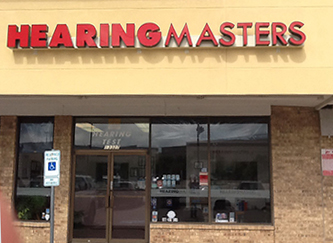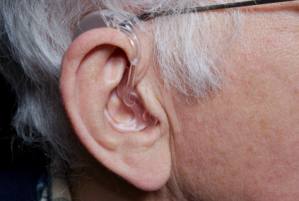 Our goal is to provide you the best possible hearing care, based upon your individual needs. We provide a comprehensive array of services related to evaluation, rehabilitation and prevention of hearing impairment. These services include comprehensive hearing evaluations, specialized diagnostic testing, and industrial hearing screenings.
Our goal is to provide you the best possible hearing care, based upon your individual needs. We provide a comprehensive array of services related to evaluation, rehabilitation and prevention of hearing impairment. These services include comprehensive hearing evaluations, specialized diagnostic testing, and industrial hearing screenings.
Choosing a hearing professional is one of the most important decisions a hearing impaired person can make. Since a hearing aid cannot be prescribed like eye glasses, proper hearing aid recommendation and fitting is highly dependent on the judgment and skill of the professional selecting the instrument. We test your hearing, select and dispense the hearing instrument best to meet your needs, in addition to ,providing support, counseling and service of the hearing system. We are concerned about the person and make hearing solution recommendations to fit your lifestyle and personal needs.
Protecting your hearing can make a big difference. We can help you protect your hearing from further deterioration through education about what affects your hearing, as well as the proper use and care of hearing protection devices.
GETTING ACCUSTOMED to your HEARING AIDS:
 It takes time….People learn and adapt at different rates. Some people need a day or two to learn about and adjust to their hearing aids, most people need a few weeks and others may need a few months. There is no perfect way to learn about hearing aids.
It takes time….People learn and adapt at different rates. Some people need a day or two to learn about and adjust to their hearing aids, most people need a few weeks and others may need a few months. There is no perfect way to learn about hearing aids.
I usually recommend…
Wear your hearing aids for a few hours the first day and add an hour a day the following day, and the next, and the next, until you are wearing hearing aids most of the day. Do not try to set an endurance record! I recommend that you interact with people familiar to you during your first days with new hearing aids. Start in a favorable listening environment (such as one-on-one conversations in quiet) and work towards more difficult listening situations. Let your friends and family know you’re using your new hearing aids.
Please do NOT wear them to a cocktail party or restaurant during the first few weeks, thinking ‘this will be a good test!’ It will absolutely not be a good test – it will be very difficult! You should not wear hearing aids in noise until you are very accustomed to them!
Helpful Steps to Learning to Use a Hearing Aid:
- At first, wear the hearing aids in your own home environment.
- Wear the hearing aids only as long as you are comfortable wearing them.
- Accustom yourself to the use of the hearing aids while conversing with just one other person.
- Do not strain to catch every word, even people with normal hearing do not hear every word!
- Do not be discouraged by background noise.
- Practice locating the source of the sound by listening only.
- Increase your tolerance for loud sounds SLOWLY.
- Practice learning to discriminate different speech sounds.
- Listen to something read aloud, “books on tape” are available at your library.
- Gradually extend the number of persons with whom you speak.
- Gradually increase the number of situations in which you use your hearing aids.
- Take part in an organized course of aural rehabilitation, see your audiologist to learn about these courses.
REALISTIC EXPECTATIONS:
 Hearing aids work EXTREMELY well when fitted and adjusted properly. Hearing aids amplify sound! The left and right hearing aids will probably not fit exactly the same and they probably won’t sound exactly the same. You might find you like one hearing aid better than the other Nonetheless, hearing aids should be comfortable with respect to physical fit and sound quality. Hearing aids do not restore normal hearing and are not as good as normal hearing. You will be aware of hearing aids in your ears. Until you get used to it, your voice will sound “funny” when you wear hearing aids. Hearing aids should not to be worn in extremely noisy environments. Some hearing aids have features that make noisy environments more tolerable, however, hearing aids cannot completely eliminate background noise. Background noise is a real bother for many people. I encourage you to speak with your hearing healthcare professional about options that do significantly reduce background noise, such as directional microphones, and FM systems, they work very well and I encourage their use.
Hearing aids work EXTREMELY well when fitted and adjusted properly. Hearing aids amplify sound! The left and right hearing aids will probably not fit exactly the same and they probably won’t sound exactly the same. You might find you like one hearing aid better than the other Nonetheless, hearing aids should be comfortable with respect to physical fit and sound quality. Hearing aids do not restore normal hearing and are not as good as normal hearing. You will be aware of hearing aids in your ears. Until you get used to it, your voice will sound “funny” when you wear hearing aids. Hearing aids should not to be worn in extremely noisy environments. Some hearing aids have features that make noisy environments more tolerable, however, hearing aids cannot completely eliminate background noise. Background noise is a real bother for many people. I encourage you to speak with your hearing healthcare professional about options that do significantly reduce background noise, such as directional microphones, and FM systems, they work very well and I encourage their use.
James Steele BC-IHIS
